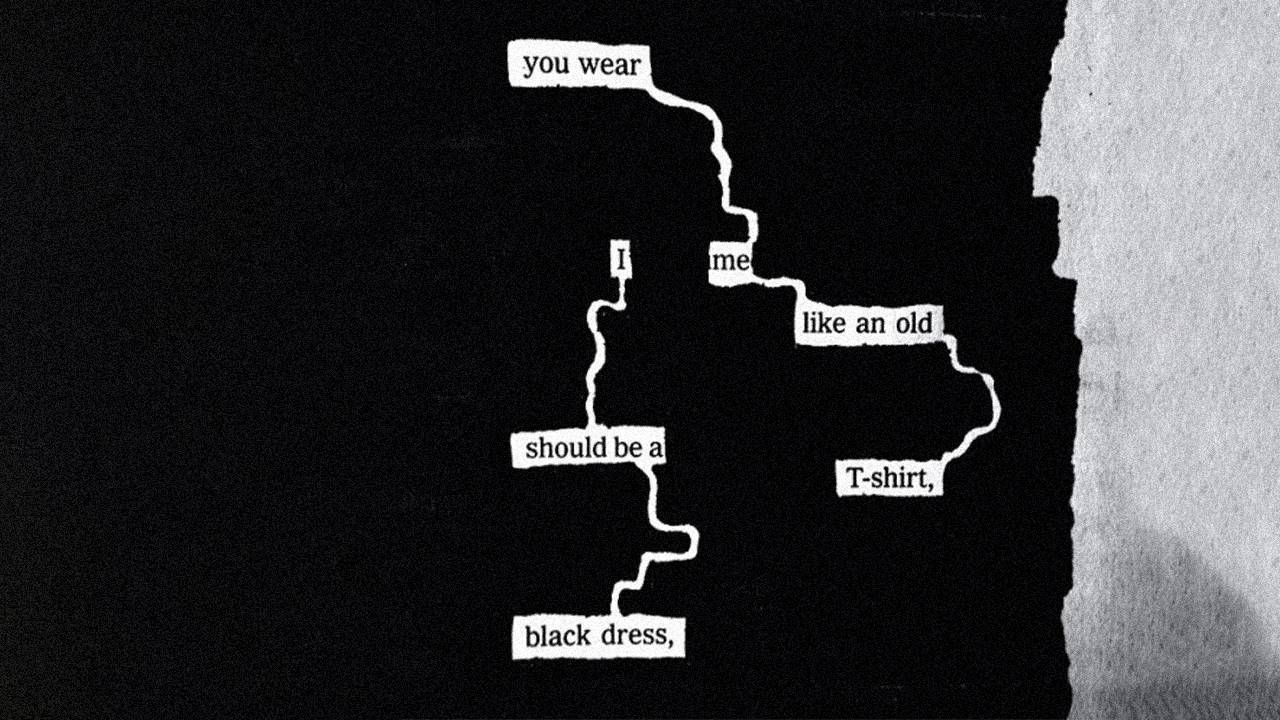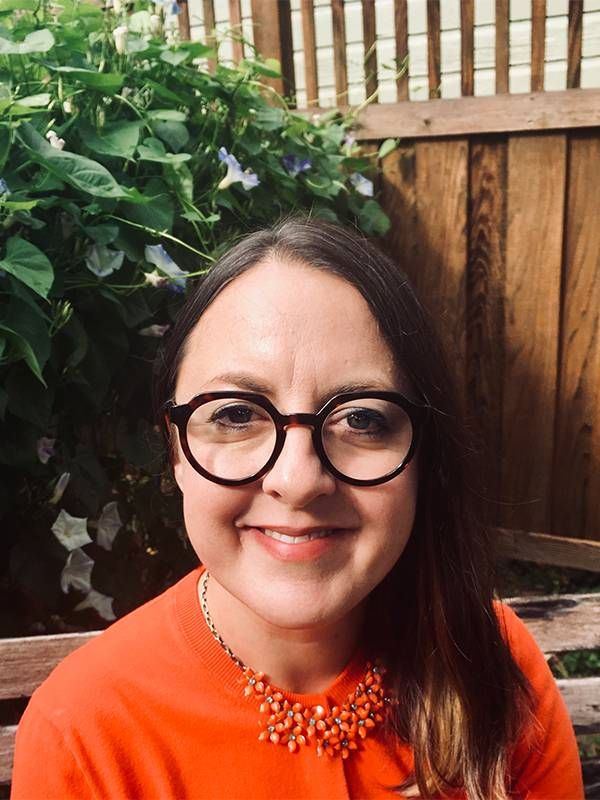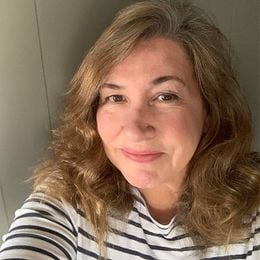This Teaching Artist Finds Poetry Everywhere
If you think poetry is only in books, Zoë Bird wants you to think past the pages
Minneapolis poet and teaching artist Zoë Bird is a self-proclaimed fan of the random, and that's one of many reasons she has loved writing poems since she was a child.
"Poetry doesn't have to make sense," said Bird. "It's okay if it just creates an impression or elicits an emotional response."

It's also okay if the form the poems take aren't what you expect a poem to look like. Case in point is the image by Austin Kleon at the top of this story, known as an erasure poem. In this technique, parts of the text are blacked out and an image – a new collection of words and thoughts – is created in its wake.
Poetry as an Antidote
Bird, who has worked with photography, collage and all manner of book arts techniques over the years, in addition to writing poetry, first learned how to do erasure poems seven years ago at a Twin Cities arts center with poet Morgan Grayce Willow, whom Bird said, "really expanded my ideas of ways to create a poem."
"Poetry doesn't have to make sense."
In fact, during the early days of the pandemic, Bird was finding herself struggling to take on bigger projects and found working on erasure poetry to be an antidote to the stressful time.
"I have one of those stand-up calendars, The New York Times Crossword-A-Day, and discovered that as I did the crosswords, a few words would jump out at me from the crossword key," said Bird. "So, I began creating these two to four word 'tiny erasures' with the pages and played with them as elements of a poem." Now, she's working on compiling all of those erasures into a chapbook (a short book of poetry).
The Random Experience of Poetry
Finding ways to be creative where you might not think the space exists to do so is something Bird has frequently observed in her role as the director for Alzheimer's Poetry Project Minnesota, where she has served as poet-in-residence since 2012.
When asked how she began that work, a process she describes as "long and wonderful," Bird said it started when she met Gary Glazner, founder of the Alzheimer's Poetry Project (APP), in the late 1990s in Santa Fe, N.M. where she was living at the time.

Bird was working at "a delicious paper store," she said, and Glazner would come in to buy beautiful paper on which to write poems to display at a local hotel, where he was poet-in-residence.
"He was just starting APP and invited me to come with him to an adult day center where he was teaching poetry," she recalled.
Uncertain of how memory loss would impact the older adults and their ability to engage with poetry, Bird instead found them to be "delightful, warm and ready to have fun together." A reading of "The Owl and the Pussycat" by Glazner inspired one woman, sitting alone at a table, to raise her voice and join in the recitation of the entire poem.
Once again, the random nature of the experience of poetry spoke to Bird. "Our thought processes aren't always linear, and in some ways, that's why I think poetry and dementia can go together," she said.
Bird worked with APP in the Santa Fe area and beyond, and returned to Minnesota (her home state) in 2012 to launch the program here.
In addition to her work with APP, Bird is an editor, certified TimeSlips facilitator (an organization focused on creative engagement for older adults) and a mentor, trainer and consultant in the field of creative aging. Bird's poems have been featured in art installations and publications including, most recently, About Place Journal, Sin Fronteras/ Writers Without Borders, and Nice Cage.
A Class on Finding Poetry Everywhere
"Poetry Everywhere: Collage, Erasure and Found Poetry" is the title of the Next Avenue Arts Learning Course that Bird is leading. (Registration for the course is no longer open.) The free, six-week online course was available to everyone, no experience required. The tools for the first class? A notebook and pen.
"All that anyone needs is a sense of openness, a lot of spontaneity and a willingness to experiment," said Bird. "What I've found working with older students is that they have so many layers of experience to share with each other. There is a desire to tell their stories, and poetry is a natural tool for that."
Holding a poetry class online, which Bird has done frequently over the course of the past year or so, has many benefits, she said.
"There's a different kind of intimacy. You can see a little context of each other's lives, whether it's art on the wall or someone washing dishes in the background," Bird explained.
The opportunity to virtually share images and text examples is also a welcome feature, as is the elimination of something we're all trying to reduce in our lives – stacks of paper.
"I don't have to make copies of everything; it's all onscreen," Bird said.
"It's a time in life when you can really create a new identity for yourself as an older, creative person."
There is also a chance to build community and be inspired by others, and Bird will encourage class participants to post their work in a common online space.
"They can spend time with each other's poetry outside of class," she said. "The goal is to have a supportive, creative group. In my experience, older adults are great at offering meaningful feedback to each other, and always in respectful ways."
Working beyond the notebook, participants will have the chance to create collage poetry in any way they care to do so. Bird said that in a recent class, one of her online students was at a family cabin and only had a one-page brochure as her starting point, using a scissors to cut and create new text. "You don't even have to cut out the words, you can tear them," Bird adds.
Bird is a big believer in allowing yourself to have creative time each day, for as much time as you can devote, as a way to see and experience the world in a fresh and different way.
"It's a time in life when you can really create a new identity for yourself as an older, creative person," she said.
Above all, Bird offers encouragement to "just be where you are" as you look for ways to be creative.
"With my tiny erasure poems from my crossword puzzles, instead of always thinking I had to worry about the world, being able to play in a low-pressure, creative pursuit was just great," she said.


